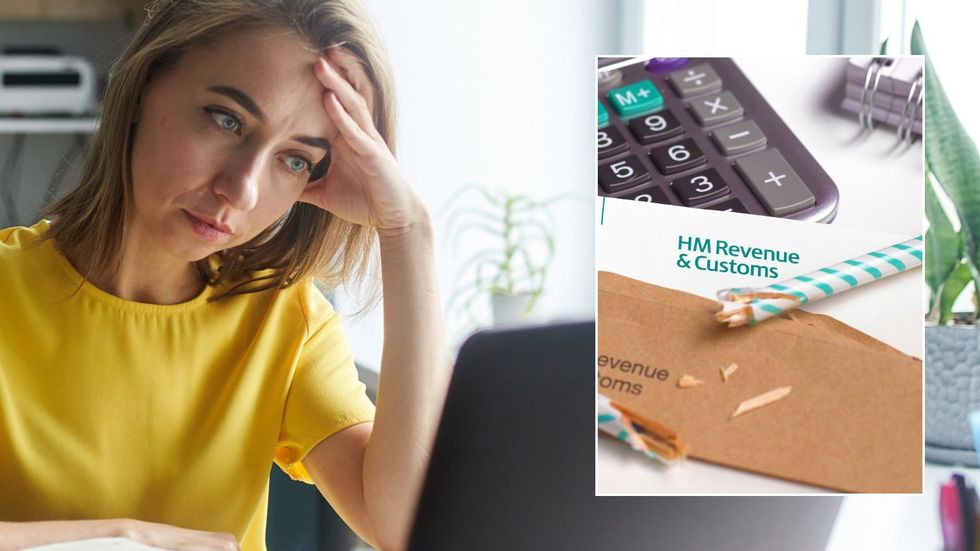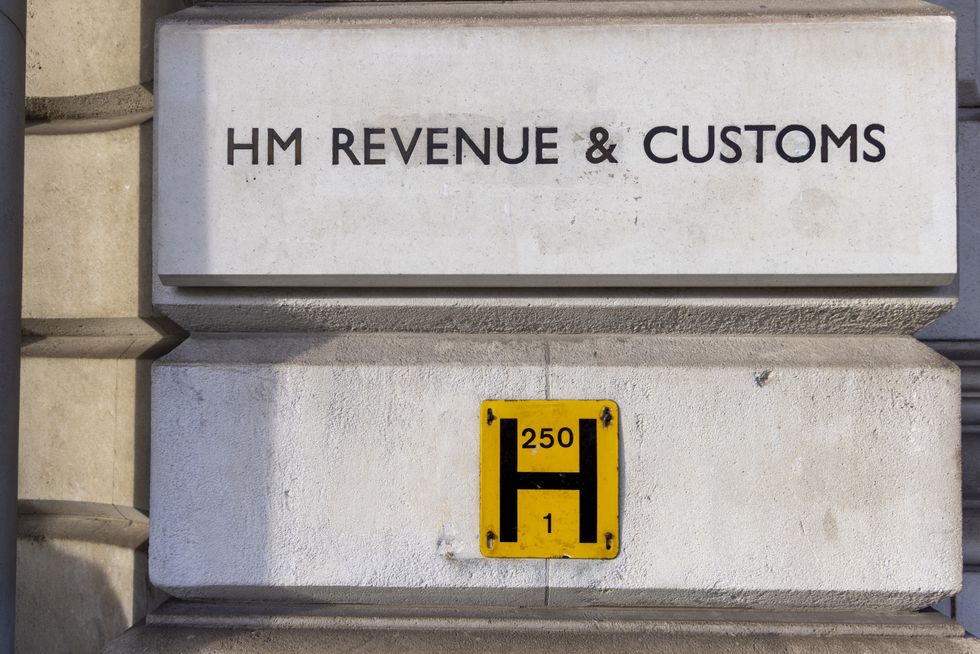HMRC writing to over 200,000 Britons warning them not to ignore letters or risk £200 fines under new rules

Jacob Rees-Mogg blasts the HMRC
|GBNEWS

Businesses are being urged to prepare for major tax reporting changes
Don't Miss
Most Read
HMRC is sending more than 200,000 letters warning taxpayers they could face £200 fines if they fail to follow new tax rules.
The tax authority is urging people to act quickly to avoid penalties for late or incorrect submissions.
HMRC are sending letters to more than 200,000 sole traders and property owners who will be required to move to the new digital tax reporting system from April 2026.
The letters are being sent to those who submitted tax returns by August 31, 2025, and reported income over £50,000.
This threshold includes total earnings from self-employment and rental properties, meaning anyone above that limit must start keeping and submitting their tax records digitally.
Arjun Kumar, Taxd Founder, warned: "If you fail to act on HMRC's letter telling you to comply with the new MTD system you could be penalised by the taxman."
The rollout schedule extends beyond 2026, with those earning between £30,000 and £50,000 joining in April 2027, followed by earners above £20,000 in April 2028.
The penalty system brings in financial consequences for those who don’t follow the rules. Businesses that build up two penalty points for annual submissions or four points for quarterly ones will face a £200 fine once they hit those limits.
Late payment charges increase the longer the bill goes unpaid, starting at three per cent of the tax owed after 15 days, rising to six per cent after 30 days, and then adding daily charges at a yearly rate of 10 per cent.
These penalties are separate from VAT and will reset once businesses consistently meet their deadlines again.

Late payment charges increase the longer the bill goes unpaid
| GETTYMr Kumar explained that whilst inaccuracy penalties won't apply to quarterly updates, "a £3,000 penalty for failure to keep digital records per quarter remains available to HMRC."
The £3,000 quarterly fine highlights how important it is for businesses to keep proper digital records, even though tax payments will still follow the usual annual schedule rather than being made every quarter.
Under the new system, businesses must send quarterly reports that follow the tax year, starting in April. The first report, covering April to June, must be submitted by August.
Each new update will include figures from all previous quarters, meaning any mistakes can be corrected in the next submission instead of amending earlier ones.
LATEST DEVELOPMENTS:

HMRC are sending letters to more than 200,000 sole traders and property owners
| GETTYSmaller businesses with turnover under £90,000 will only need to report total income, expenses, and profit. Those earning more must provide a detailed breakdown of expenses.
Although reporting will happen quarterly, payment dates will stay the same - with tax bills due by January 31 and payments on account still required on January 31 and July 31.
Keeping digital records will become mandatory, with businesses needing to use compatible software or spreadsheets that link directly to HMRC’s online system.
Paper receipts alone will no longer suffice as evidence of transactions. Businesses can continue using existing spreadsheets provided they maintain digital links for uploading data to HMRC-approved software.

Paper receipts alone will no longer suffice as evidence of transactions
| GETTYSetting up a dedicated business bank account makes it easier to track transactions and stay compliant with the new rules.
The annual submission deadline will remain Janurary 31 after the end of each tax year. This final return combines all quarterly business data with other income sources, such as employment, pensions, and investments.
It also includes all applicable reliefs, credits, and deductions. While businesses can use different software for quarterly and annual submissions, using the same platform throughout the year helps keep everything consistent and simpler to manage.
More From GB News










